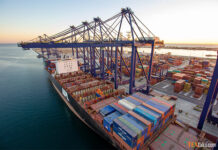- ‘Increase in POL prices will further escalate the cost of industrial production and will spur inflationary trend which has already reached 9.4pc’
ISLAMABAD: The Federation of Pakistan Chamber of Commerce and Industry (FPCCI) has expressed serious concerns on the exorbitant increase of Rs6 per litre in the prices of petrol and diesel.
“It will have a multiplier effect on almost all the business activities, including the cost of transportation of raw materials and consumer goods. This will further escalate the cost of production of industrial goods and will spur inflationary trend which at present has already reached 9.4pc,” said the FPPCI president in a statement.
He elaborated that the price of all food and kitchen items, construction material, fertilizers and imported goods would be increased, as these goods are supplied to the different cities of the country through diesel-based vehicles.
The FPCCI chief recalled that the price of crude oil in the international market on August 2018, when the Pakistan Tehreek-e-Insaf government assumed charge, was $75 per barrel, which, by March 28, 2019, had further declined to $66.67/barrel.
“However, instead of passing on the benefits to the masses, the government increased the prices of POL products by Rs6. It is deplorable that the government refrained from providing relief to the consumers,” he remarked.
The FPCCI president argued that the actual price of petrol is Rs58.94 per litre, whereas it is supplied to the consumers at Rs98.89/litre. “This means that the government, dealers and distributors earn about Rs40 per litre,” he added.
He said about 90pc of the total consumption of POL products are jointly consumed by the transport sector and the power sector, wherein, almost 65pc electricity is generated through the thermal resources. The share of fuel (furnace oil and diesel) in thermal power generation is 52pc, he concluded.
























